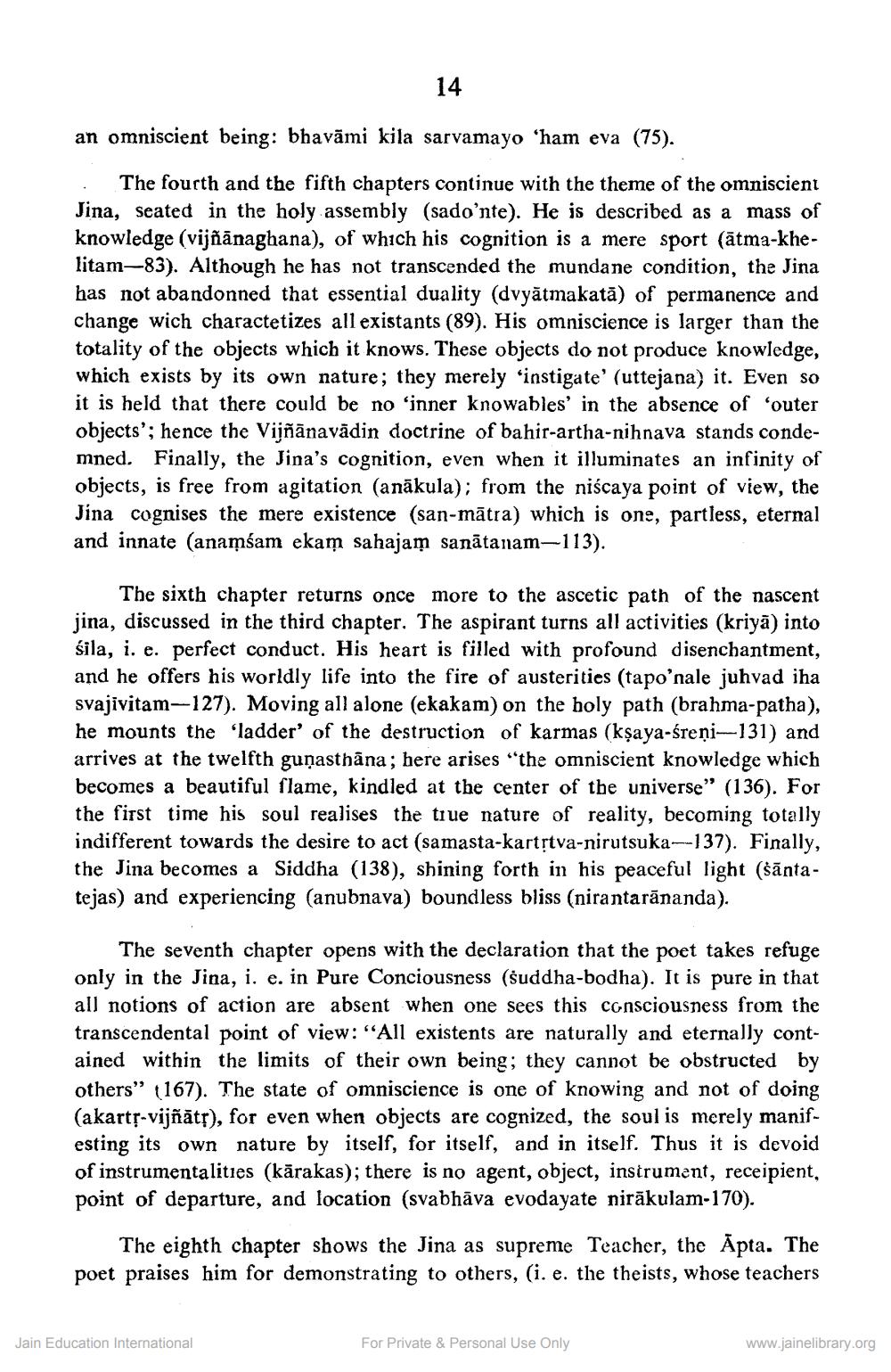________________
14
an omniscient being: bhavami kila sarvamayo 'ham eva (75).
The fourth and the fifth chapters continue with the theme of the omniscient Jina, seated in the holy assembly (sado'nte). He is described as a mass of knowledge (vijñānaghana), of which his cognition is a mere sport (ātma-khelitam-83). Although he has not transcended the mundane condition, the Jina has not abandonned that essential duality (dvyatmakatā) of permanence and change wich charactetizes all existants (89). His omniscience is larger than the totality of the objects which it knows. These objects do not produce knowledge, which exists by its own nature; they merely 'instigate' (uttejana) it. Even so it is held that there could be no 'inner knowables' in the absence of 'outer objects'; hence the Vijñānavādin doctrine of bahir-artha-nihnava stands condemned. Finally, the Jina's cognition, even when it illuminates an infinity of objects, is free from agitation (anākula); from the niscaya point of view, the Jina cognises the mere existence (san-matra) which is one, partless, eternal and innate (anamśam ekam sahajam sanatanam-113).
The sixth chapter returns once more to the ascetic path of the nascent jina, discussed in the third chapter. The aspirant turns all activities (kriyā) into sila, i. e. perfect conduct. His heart is filled with profound disenchantment, and he offers his worldly life into the fire of austerities (tapo'nale juhvad iha svajivitam-127). Moving all alone (ekakam) on the holy path (brahma-patha), he mounts the 'ladder' of the destruction of karmas (kṣaya-śreņi-131) and arrives at the twelfth guṇasthana; here arises "the omniscient knowledge which becomes a beautiful flame, kindled at the center of the universe" (136). For the first time his soul realises the true nature of reality, becoming totally indifferent towards the desire to act (samasta-kartṛtva-nirutsuka-137). Finally, the Jina becomes a Siddha (138), shining forth in his peaceful light (santatejas) and experiencing (anubnava) boundless bliss (nirantarānanda).
The seventh chapter opens with the declaration that the poet takes refuge only in the Jina, i. e. in Pure Conciousness (suddha-bodha). It is pure in that all notions of action are absent when one sees this consciousness from the transcendental point of view: "All existents are naturally and eternally contained within the limits of their own being; they cannot be obstructed by others" (167). The state of omniscience is one of knowing and not of doing (akartṛ-vijñātṛ), for even when objects are cognized, the soul is merely manifesting its own nature by itself, for itself, and in itself. Thus it is devoid of instrumentalities (kārakas); there is no agent, object, instrument, receipient, point of departure, and location (svabhava evodayate nirākulam-170).
The eighth chapter shows the Jina as supreme Teacher, the Apta. The poet praises him for demonstrating to others, (i. e. the theists, whose teachers
Jain Education International
For Private & Personal Use Only
www.jainelibrary.org




